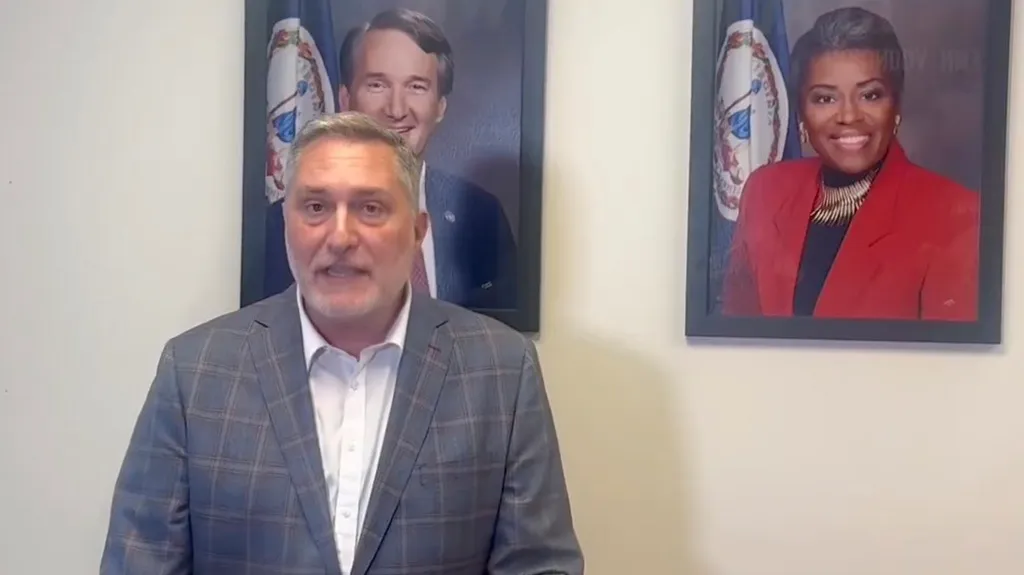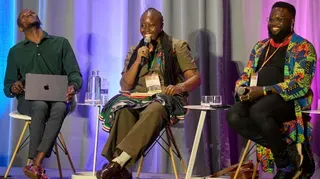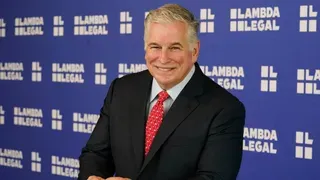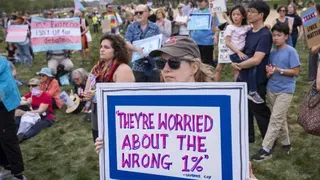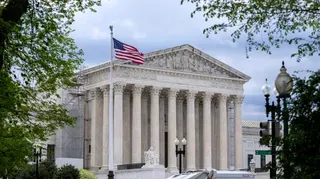September 20, 2007
LGBT Spiritual Refuge, The Metropolitan Community Church, celebrates 35 years
Frances Betlyon READ TIME: 5 MIN.
During his Sept. 16 sermon the Rev. Michael Cooper, pastor of the Metropolitan Community Church (MCC) of Boston, put a new spin on the parable in the Gospel of Luke about a shepherd who leaves his flock behind to venture into the wilderness and find one lost sheep. Cooper said that while most readings of the parable focus on the shepherd as a metaphor for Jesus working to convince the most desperate sinner to repent, he preferred to look at the sheep's perspective and imagine why it might have run away from the flock in the first place.
"I think that sheep might have had probably the right idea in his mind at the time," said Cooper. "Because that sheep was probably realizing, if I stay here with these folks, with this herd, this sheep, I know what is going to happen to me. There's one place where I'm going to go, and that's probably going to be a slaughterhouse or somebody's kitchen table."
Cooper described MCC Boston, which that evening marked its 35th anniversary, as a refuge for LGBT people who, like the sheep, fled their own Christian denominations. He said MCC Boston, which like the MCC denomination as a whole is LGBT-focused, has welcomed LGBT people who left or were forced out of churches that preached anti-gay messages.
"As the psalmist wrote, there are people who eat up God's people as they eat bread. We know who they are. We have several of those in our own city, whether it be down the street at Tremont Temple [Baptist Church] or Park Street [Church], people who say that you can't be gay and Christian, people who take people from our own community and warp their minds and bring them great pain and suffering," said Cooper, referring to two nearby churches, the former of which has hosted several anti-gay events over the past several years and the latter of which operates an ex-gay ministry. "We are called as shepherds of God's flock to bring those people back, to open our hearts and hands and say to them, 'Come, go away from that violence, go away from that hatred and that taint.'"
Jim Hayes, one of the founders of MCC Boston, said that when he and the church's first pastor, the Rev. Laurence Bernier, and a handful of others founded the church in 1972 they expected that the church would be a temporary project.
"We all thought that it was just going to be a five- or six-year kind of phenomenon and what we would do would lead mainline Protestant denominations to recognizing that gay and lesbian people are equal and good, and then we'd be accepted at all the regular churches. And it turns out to be taking longer than we thought," said Hayes. "But we're happy that a lot of denominations have made a lot of progress although there are some that are sort of half and half, like the Episcopalians for example."
Hayes was raised Roman Catholic, and despite the church's anti-gay doctrine he said he still finds himself returning to Catholic masses on occasion to enjoy the beauty of the music and the service from the tradition of his childhood. He added, though, that while several mainline Protestant churches, particularly in the Boston area, have adopted inclusive approaches to LGBT members, he continues to call MCC Boston his home because of its special mission to LGBT people.
"It's a place where people who have been very hurt, either by other churches or blood relatives, can come to come out and to be healed, and to really hear the true gospel of Jesus Christ. And once they begin to drink that in and begin to understand God loves them just the way they are they either stay and grow with us or they choose to go back to one of those other churches to spread the message," said Hayes.
One of those who stayed was Paul Moyer, a Wakefield resident and a member of MCC Boston for about 11 years, who said he grew up attending a Church of God congregation but distanced himself from the church when he sensed that they would not accept him if he was open about his homosexuality. Years later he was visiting some friends in Jacksonville, Fla., when they invited him to come with them to "gay church."
"And I said, 'What's gay church?' Well, he took me to MCC Jacksonville, and I fell in love with MCC," said Moyer. When he came back to Massachusetts he found MCC Boston and became a regular member.
Moyer said he and his partner wanted to see if they would feel comfortable at a mainline church that was officially open and accepting of LGBT people, and they attended a service at an American Baptist church. But despite the church's official welcoming stance he said he and his partner felt that some people in the congregation were less welcoming than others.
"I tried a gay accepting church, but you know there's some people in the pews there that are kind off growling about, 'Why are those people here?' [MCC Boston] is a gay church," said Moyer.
Despite the church's LGBT mission, the anniversary service felt like a standard mainline Protestant service with a few key differences. The service featured readings from the Old and New Testaments, traditional hymns (some edited with gender-inclusive language), and the Communion rite. Yet draped across the altar was a large rainbow flag, and at the front of the altar a white candle decorated with a red AIDS ribbon burned throughout the service. The congregation, which consisted predominantly of men in their 40s and older, included several same-sex couples who draped their arms across each other's shoulders without reservation. In the church bulletin underneath the description of the Communion rite is the message, "We come out as God's people!"
That message is what convinced the Rev. Jim Merritt, who served as a Southern Baptist Minister in Florida for more than 20 years, to change his affiliation to MCC about six years ago. Merritt is pursuing masters and doctoral degrees at the Episcopal Divinity School (EDS) in Cambridge, which has a partnership with the MCC denomination. As part of his degree program he is interning at MCC Boston.
Merritt said he began coming out gradually while still active in the Southern Baptist denomination, but he met strong opposition to his gay activism from within his church. He became friends with the Rev. Troy Perry, founder of the MCC denomination, who convinced him to make the switch.
"One day he wrote me a one line e-mail that said, 'Dear Jim, I believe God has a place for you in our church, love Troy.' And it was sort of like the voice of God. And I called him up and I said, 'Okay Troy, I give in, let's do it,'" said Merritt.
He said he was drawn to MCC because of its mission of welcoming people who experienced "spiritual violence" in their home churches.
"When the professors at EDS asked me, who is your church, when I was interviewing there, I said, my church is the people nobody wants in their church. ... I think that MCC will always be the safe haven for people like myself who've experienced [spiritual violence] in their home denominations," said Merritt.
